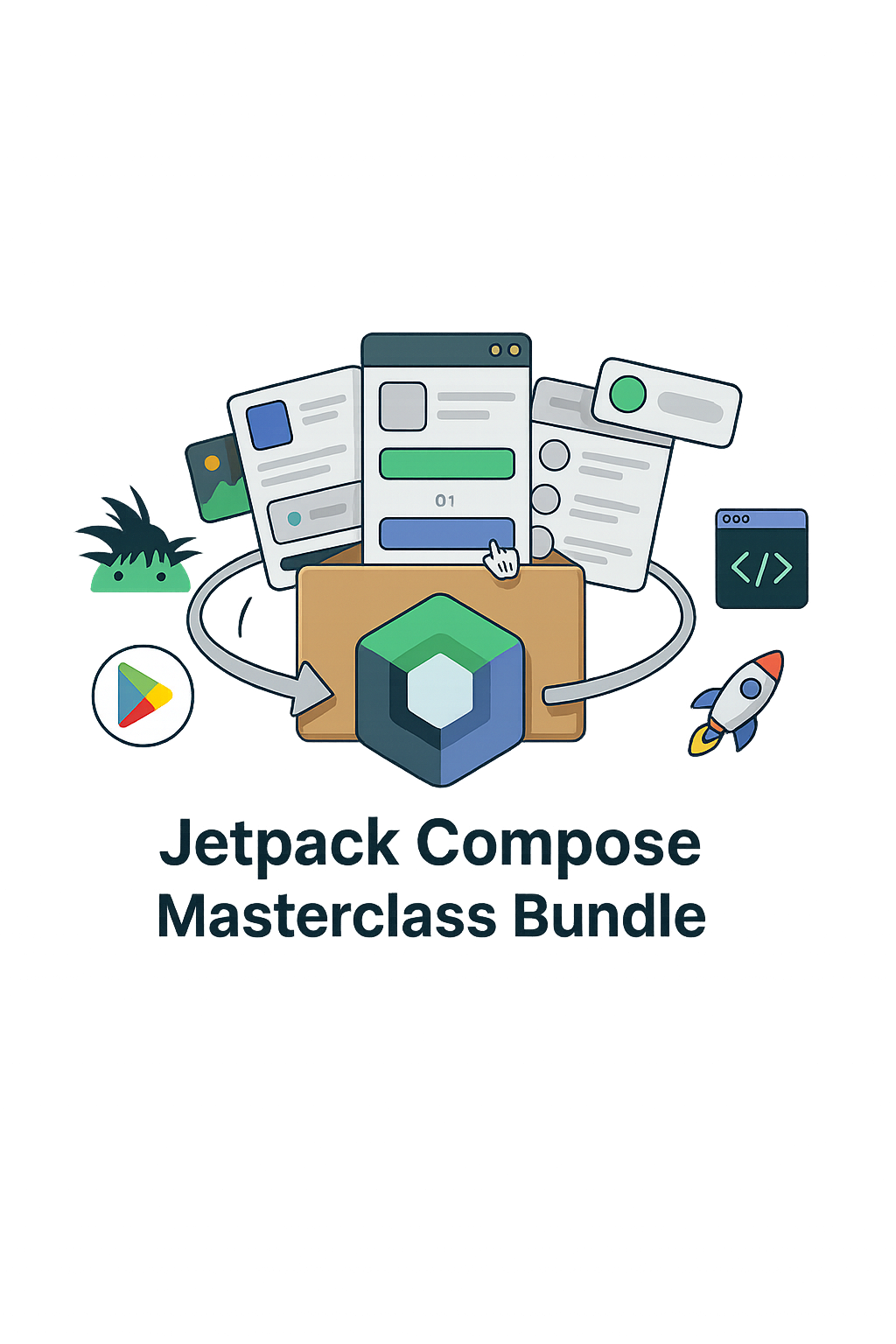.png)
.png)
6-Month DSA Roadmap for Android Developers
This roadmap will help you build a strong foundation in Data Structures and Algorithms (DSA) over six months, ensuring you are well-prepared for both Android development and technical interviews. Each week focuses on essential topics, with a mix of theory and practice. Let’s get started!
Month 1: Basics and Arrays
Week 1: Introduction and Basics
📚 Importance of DSA: Why DSA matters for Android developers.
⏳ Time/Space Complexity: Understanding Big O, Theta, Omega.
🔍 Linear and Binary Search: Basics of search algorithms.
Week 2: Arrays
📋 Array basics: Introduction to arrays and their operations.
⚙️ Operations: Insert, delete, and traverse.
🗄️ 1D/2D arrays: Working with different array structures.
📝 Practice: Solve beginner-level problems.
Week 3: Arrays (continued)
↔️ Two-pointer technique: Learn this efficient technique for solving array problems.
🔄 Sliding window: Explore this technique for subarray problems.
📝 Practice: More hands-on problems.
Week 4: Strings
🔤 String basics: Introduction to string operations.
🔧 Functions and manipulations: Learn common string manipulation methods.
🔍 Pattern searching: Naive, KMP, and Rabin-Karp algorithms.
📝 Practice: Work through common string-based problems.
Month 2: Linked Lists and Stacks
Week 5: Linked Lists
🔗 Basics: Understand types of linked lists (Singly, Doubly, Circular).
⚙️ Operations: Insert, delete, traverse linked lists.
📝 Practice: Solve beginner linked list problems.
Week 6: Advanced Linked Lists
🚀 Advanced problems: Explore complex linked list problems.
📝 Practice: Continue solving intermediate problems.
Week 7: Stacks
🥞 Basics of Stack: LIFO concept and common operations (push, pop, peek).
📊 Applications: Learn about stack use cases (e.g., function calls, parentheses validation).
📝 Practice: Stack-related problems.
Week 8: Queues
🚶 Queue basics: FIFO concept and operations (enqueue, dequeue).
🧩 Types: Understand simple, circular, and priority queues.
📝 Practice: Queue-based problem solving.
Month 3: Trees
Week 9: Trees
🌳 Basics: Introduction to tree data structures.
🔄 Traversals: Learn in-order, pre-order, and post-order traversals.
Week 10: Binary Search Trees (BST)
🔍 BST properties: Insertion, deletion, and searching in BST.
📝 Practice: Solve problems around BST operations.
Week 11: Balanced Trees
⚖️ AVL Trees: Understand self-balancing trees.
🔴⚫ Red-Black Trees: Explore properties and operations.
📝 Practice: Work through balanced tree problems.
Week 12: Heaps
⛰️ Heap basics: Learn about min-heaps and max-heaps.
🧮 Priority Queue: Applications and implementation.
📝 Practice: Heap-related problems.
Month 4: Graphs
Week 13: Graphs
🌐 Basics: Introduction to graph theory.
🛠️ Representation: Adjacency matrix, adjacency list.
Week 14: Graph Traversal
🚶♂️ BFS and DFS: Understand graph traversal methods.
📝 Practice: Solve traversal problems.
Week 15: Shortest Paths
🛣️ Dijkstra's Algorithm: Shortest path in weighted graphs.
🚀 Bellman-Ford: Handle negative weights.
🌐 Floyd-Warshall: All-pairs shortest paths.
📝 Practice: Work through pathfinding problems.
Week 16: Minimum Spanning Tree (MST)
🌲 Kruskal's and Prim's: Learn how to find MST.
📝 Practice: MST-related problems.
Month 5: Advanced Topics
Week 17: Dynamic Programming (DP) + Recursion
🤖 DP Basics: Learn memoization vs tabulation.
📜 Classic problems: Explore common DP problems.
Week 18: Advanced DP
🧩 Complex problems: Solve more challenging DP problems.
📝 Practice: Continue practicing DP.
Week 19: Backtracking
🔙 Basics: Introduction to backtracking.
🧩 Classic problems: Solve recursive and backtracking problems.
Week 20: Greedy Algorithms
💡 Basics: Learn the greedy approach to problem-solving.
📜 Classic problems: Solve typical greedy algorithm problems.
📝 Practice: Continue working on greedy problems.
Month 6: Review and Mock Interviews
Week 21-24: Review and Practice
🔄 Topics: Arrays, strings, linked lists, stacks, queues, trees, heaps, graphs, DP, backtracking, greedy.
📝 Mixed problems: Focus on mixed-topic problem-solving.
Week 25: Mock Interviews
🎤 Interviews: Participate in mock interviews and timed problem-solving.
📝 Platforms: Solve problems on LeetCode, HackerRank, CodeChef.
Week 26: Final Revision
🔍 Weak areas: Focus on areas where you need more practice.
📝 Final practice: Prepare for interviews by solving final sets of problems.
Akshay Nandwana
Founder AndroidEngineers
You can connect with me on:
Book 1:1 Session here Click Here
Join our upcoming classes
https://www.androidengineers.in/courses

Jetpack Compose Essentials: 4-Week Weekend Bootcamp
A focused 4-week weekend bootcamp covering Compose fundamentals, state management, animations, and architecture. Build 2 production-ready apps and master essentials in just 4 weekends.

Get the latest Android development articles delivered to your inbox.